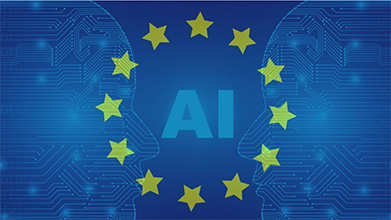The Impact of the AI Act: A Comprehensive Overview

The advent of the AI Act in the European Union has introduced a significant regulatory framework that impacts a wide range of industries, including energy and technology. For NRGIE-X, a leader in the energy innovation sector, understanding and aligning with these new regulations is critical to maintaining its position at the forefront of the industry.
One of the key roles within NRGIE-X that will be affected by the AI Act is the Deployer. This term refers to the entity responsible for putting an AI system into service. The responsibilities of the Deployer now extend beyond simple implementation. They must ensure that the AI systems used are compliant with the Act's requirements, especially when these systems are deployed within the European Union.
A central aspect of the AI Act is its emphasis on ensuring that AI systems are used as intended. Any attempt at modifying the intended purpose of a system now comes under strict scrutiny. For NRGIE-X, this means that once an AI system is designed and approved for a specific function, any deviation from this intended use must undergo a rigorous reassessment process. This could involve additional compliance checks and possibly obtaining new certifications.
Another critical aspect of the AI Act is its focus on where and how AI system’s output is used in the EU. For NRGIE-X, this means that all AI-generated insights, predictions, or recommendations utilized within the European Union must meet the standards set forth by the Act. This extends to any AI-driven processes that influence decision-making in the energy sector, including those related to grid management, resource allocation, and sustainability initiatives.
Importantly, the AI Act categorizes certain AI systems as prohibited or high-risk, meaning that these systems cannot be deployed within the EU. NRGIE-X must ensure that it only works with AI systems that are classified under the acceptable categories. This requirement is crucial as the company continues to innovate and develop new AI-driven solutions. Under the Act, NRGIE-X must guarantee that it employs no excluded, prohibited or high risk systems in its operations. Failure to comply could result in significant legal and financial consequences.
Additionally, the AI Act specifically addresses the creation and use of synthetic media. As NRGIE-X explores the potential of AI in generating content, whether for educational purposes, marketing, or data simulation, it must adhere to the guidelines surrounding generating synthetic audio, video, image or text. This is particularly relevant when such media could influence public opinion or is used in a manner that impacts decision-making processes within the energy sector.
In conclusion, the AI Act represents a pivotal shift in the regulatory landscape for AI technologies within the EU. For NRGIE-X, this Act necessitates a thorough reassessment of how AI systems are developed, deployed, and utilized. Ensuring compliance will not only protect the company from regulatory penalties but also reinforce its commitment to ethical and responsible innovation in the energy industry.
As the AI landscape continues to evolve, NRGIE-X must remain vigilant and proactive in adapting to these changes. By staying ahead of regulatory requirements and embracing the principles outlined in the AI Act, NRGIE-X can continue to lead the way in the energy sector, leveraging AI technologies to drive innovation and sustainability while upholding the highest standards of compliance and responsibility.
To learn more about the AI Act: ENGIE > Agora > News > "The AI Act: Championing Responsible AI at ENGIE" > Simplified document > Learn more.
